To mark the 200th grant awarded, I thought it would be fun to share a behind-the-scenes peek into Seton Shields Genealogical Grants. To that end, I hope you’ll enjoy listening in to a conversation I had with my assistant, Nicole, as she picked my brain about my grants program.
How do you go about choosing who you’ll award the grant to each quarter?
My husband, Brian, and I actually make a sort of date of it. I print out all the applications from the past six months and we take them with us to a local coffee shop to review them. We have a rating system we use to identify top contenders and once we’ve done that, we debate their merits until we have a clear winner.
That sounds like fun! Can you tell me more about how you decide which applications make it to the round of finalists? What makes an application stand out to you?
Well, there are a number of things I like to see. For one, I’m always attracted to the novel, so a request for something new catches my eye, especially if it’s for something I think could serve as a useful model that others can copy.
Do you have an example you can share?
Hmmm . . . One that comes to mind is the first time I heard of ground-penetrating radar being used to find unmarked graves – this was for a grant way back in 2003, as I recall. I thought it sounded space age!
Another thing I remember about that particular grant is that it concerned a native burial ground. I’m a sucker for the historically neglected – women, minorities, and immigrants, for example – so that also grabs my attention when I’m reviewing applications.
What else?
It excites me when I see something that has real potential for a ripple effect, something that can end up helping a lot of people. For instance, I’ll be giving a grant soon to Reclaim the Records, which started as one person’s successful effort in New York City to get records opened which, by law, should already have been made open to the public. Now the effort is going national and that has potential to help a whole lot of people as they research their roots.
I also love it when there’s a matching initiative, since that means the money I give can go further, can do more good. I remember a grant from late in 2015 – the Sequoia Genealogical Society – where that was the case.
And because I started my own genealogical journey in the sixth grade, I have a soft spot for youngsters. When I see someone young showing an interest in genealogy, I like to encourage it.
All that said, I’ve also given grants to help fund things like shelves or scanners for libraries, picture frames and archival and preservation-friendly materials for a museum, and books about famous African Americans from the South for a classroom. It’s sad, but that’s where budgetary realities are now, so things that seem to fall more on the mundane end of the spectrum are certainly still in the running.
Is there anything that would cause you to eliminate an application from consideration?
Well, I appreciate it when I can see that a person has done his or her homework. So if someone asks a question in their application which could have been answered by just spending a few minutes poking around my website (say, skimming through some of the past grant awards), it makes me wonder whether this is a person who’d really make wise use of any money they’re awarded.
Another thing – and this is one I hesitate to mention because I realize it’s motivated by a desire to be considerate – is that sometimes applicants will leave the field for dollar amount blank or maybe they’ll write, “Whatever you can afford,” or something along those lines. Really, I appreciate a specific figure being requested because otherwise, I’m left guessing at the amount that would be helpful.
Naturally, any applications that aren’t genealogy-related are eliminated right away.
Finally, because I’m just one person (as opposed to a deep-pocketed organization), applications for amounts that far outstrip the resources I have to give have to be eliminated. For instance, I’ll occasionally get an application for very large amounts (i.e., tens of thousands of dollars and more) so someone can spend time traveling the world to research their roots. I can certainly sympathize with that desire, but it’s just not something I can give serious consideration to funding. A specific trip for a specific objective is something I can – and do – consider, but an open-ended, exploratory research tour – not so much.
Because the amounts I can give are modest, I’m always looking for that sweet spot where the funds will have the greatest impact for good.
Is there anything about your grants program that people might find surprising?
Well, the least of my concerns – really, a non-concern – when I’m choosing where to give are tax implications. Please, don’t let lack of tax-exempt, nonprofit status prevent you from applying!
Also, most large grant organizations don’t want to be the first to give to a new project. So if you’re someone with a genealogy-related project that’s innovative and has potential to benefit a lot of people but which requires significant capital to bring it to life, it’s still worth applying. It’s possible you may be awarded what amounts to a seed grant, something which could possibly help you to catch the eye of larger entities with deeper pockets.
Once you’ve chosen a finalist to award a grant to, what are your next steps?
For the most part, genealogists are really good, honest people, so I do some due diligence, but it’s not terribly exhaustive. I’ll check out someone’s website, Google their name to see what comes up, stuff like that.
All being well, I hand it over to you to get in touch with the winner.
That’s always fun because people are happy to hear they’ve been chosen to receive a grant! Are there any grants that have really stood out to you over the years?
That’s a little like asking a mother to choose which of her children is her favorite!
But, let’s see.
It’s always fun when I get to see the results of a grant.
Like one time, I was speaking in New Zealand, and a woman came up to give me a copy of a book. It turns out that this woman had been awarded a grant to assist in publishing a book about 1,100 soldiers from Fiji who served in WWI and this was that book! (This is one of those neglected pockets of history I alluded to earlier.) That experience was really neat, getting to see the tangible results of a grant.
Another that comes to mind is Marge Rice, one of my very early grant recipients, who rescued orphaned photos from antique stores and reunited them with their original families. Sadly, Marge recently passed away, but for more than fifteen years, she steadily updated me on her stats, so if folks search for grants awarded in 2001, they can check out the Marge-O-Meter that shows what one determined person can do!
Of course, these are just two examples out of many.
If someone has applied in the past without being chosen, is it worth applying again?
Yes, they’re absolutely welcome to, as long as it’s been at least six months since they applied. (Applications are active for six months after I receive them.) Sometimes I get a bunch of great applications at once, but I have to narrow it down to just one recipient. It could be that I have a tie between two worthy applications but one is more time-sensitive, so that’s the one I award to.
Switching gears a little bit, can you tell me a little about how you named your grants program?
Of course. Originally, it was called Honoring Our Ancestors Grants.
But Seton Shields was my mother and being a genealogist, when we lost her, it felt natural to pay tribute by renaming the program after her.
Did your mom encourage your interest in genealogy?
Not in a direct sense, per se, although family was certainly something that mattered very much to her.
In an indirect sense, though, I’d say yes.
Mom was a bold woman, ahead of her time, who lived life out loud. In her younger years, she did the traditional thing – married and had two children – but the trailblazer side of her really came into its own in her later years.
She was a feisty, funny woman who, with no more academic credentials than a two-year nursing degree, went on to become CEO of one of the first HMOs in the U.S. in the 1980s, a time when female senior executives were a real rarity. (The picture above is one of Mom in her office.)
Her office was at 1300 Pennsylvania Avenue, down the street from the White House, and the balcony was decorated with those pink plastic flamingos that people used to place on their lawns. She and her workmates (at the very beginning, there were three other people, but in her first year she won a seventy-million-dollar contract and it grew from there) worked hard, but they knew how to have a lot of fun at it, too.
She was brilliant (if IQ matters to you, Mom was technically a genius), but far more important than that, she was brimming with life smarts. She was my barometer of good decisions and even now, I miss being able to call her when something thorny or complicated comes up to ask her what she thinks. Asking myself, “What would Mom/Seton do?” is the substitute I have to content myself with.
She really made me believe that with hard work, anything is possible – and without that foundation, I’d never have succeeded in creating this career doing what I love.
Definitely an ancestor to honor! Megan, thank you so much for sharing all of this. Hopefully, it will not only be interesting for people to read but will also help anyone who’s thinking of applying (or re-applying) for a grant to have the best possible chance of success.
That’s my hope. The grants I give each quarter aren’t huge, but my desire is that the cumulative effect – a little at a time, given consistently over time – will really add up to something that enriches the genealogical community at large.

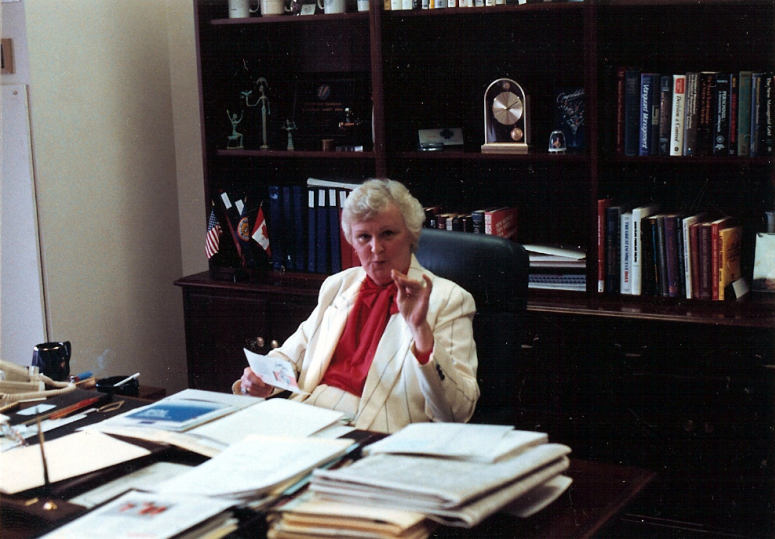
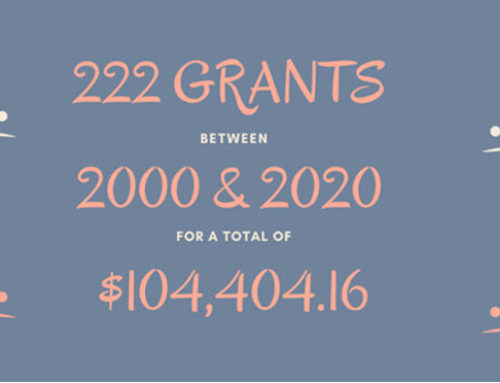
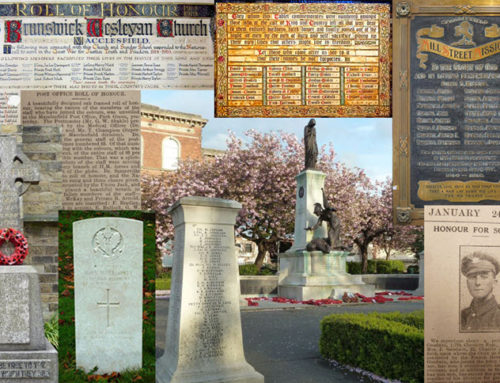
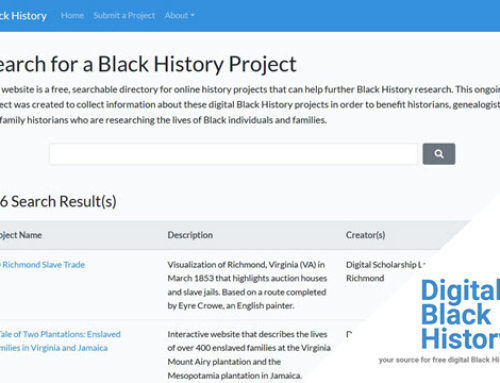
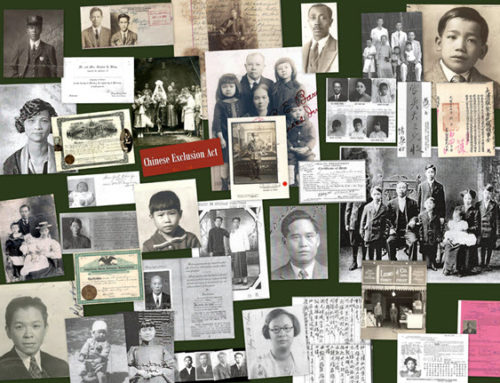
Leave A Comment